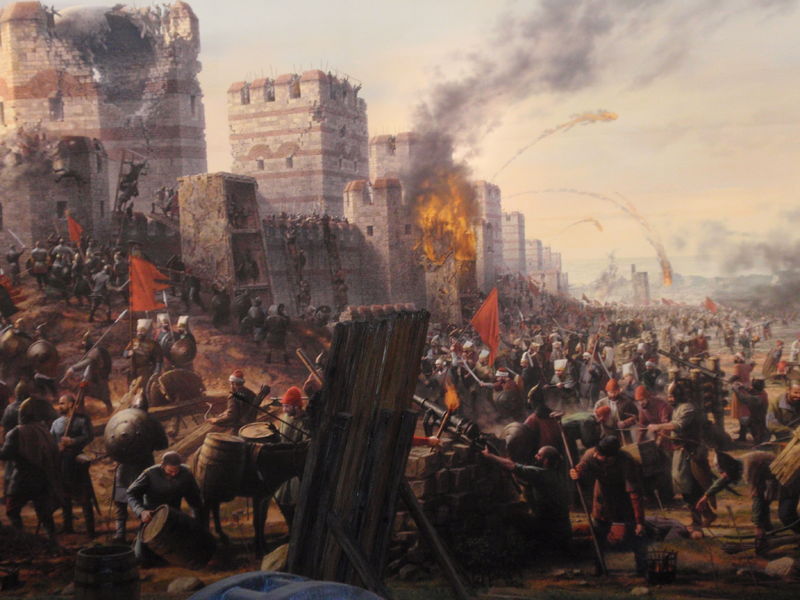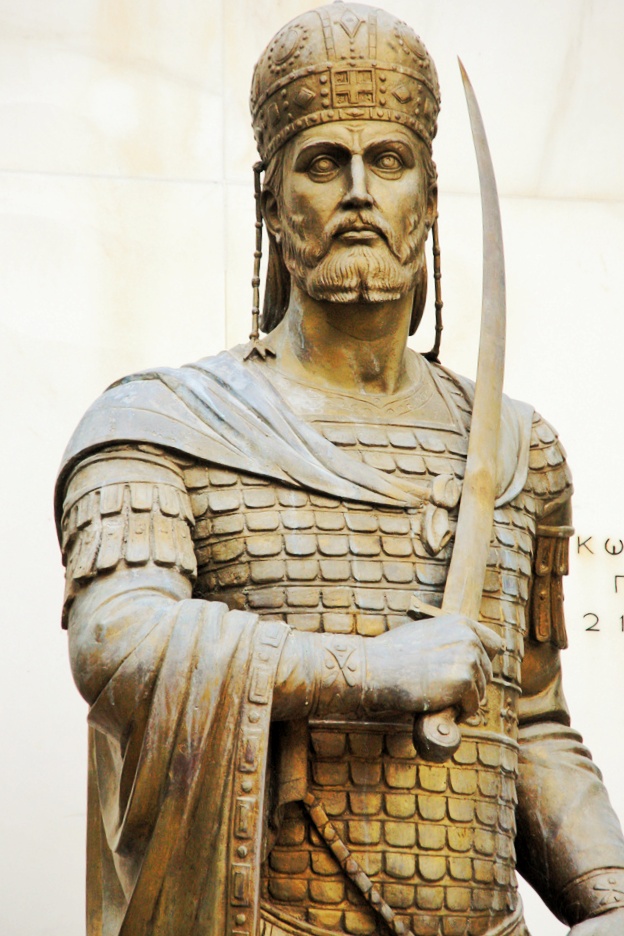

After the sack of Constantinople by the Fourth Crusade, a Latin Empire had lasted for about seventy years, but eventually the Byzantine Romans returned to the city with little resistance. However, the Empire never recovered from that fatal blow.
The Turks, meanwhile, were on the rise. Sultan Osman I had founded the Ottoman Dynasty and taken up the mantle of the Caliphate, and by the fifteenth century the Turks were completely in control of not only Anatolia, but had crossed into Europe and now controlled the Balkans as well. The Roman Empire had been reduced to the city of Constantinople itself.

In 1439, Emperor John VIII had attended the Council of Florence and tried to enlist Western military support by reuniting the Catholic and Orthodox Churches, and although an agreement was reached, it was opposed by the eastern bishops and never went anywhere. John VIII died in 1449 and was succeeded his younger brother, Constantine XI.
Constantine did what he could to prepare for the inevitable Ottoman attack, which came four years later. Sultan Mehmet II laid siege to the city with an army of around 80,000 men, along with a large navy and a new state-of-the-art weapon, the bombard. For the first time in history, this heavy cannon was able to break through the city's Theodosian Walls. The Romans put up a fierce resistance, but once inside, the Ottomans overwhelmed the defenders. Constantine XI was killed in the fighting. The city fell on May 29, 1453, marking the end of the Roman Empire after 2,023 years, 1 month, and 8 days. (For comparison, the United States has existed for just 247 years, 9 months, and 14 days.)
The Turks renamed Constantinople "Istanbul" and Mehmet II took the title "Qaysar-i-Rum," or "Caesar of Rome." Needless to say, a shocked Western Europe did not recognize this title, and conflict would continue for several centuries as the Ottomans continued to expand into Europe.